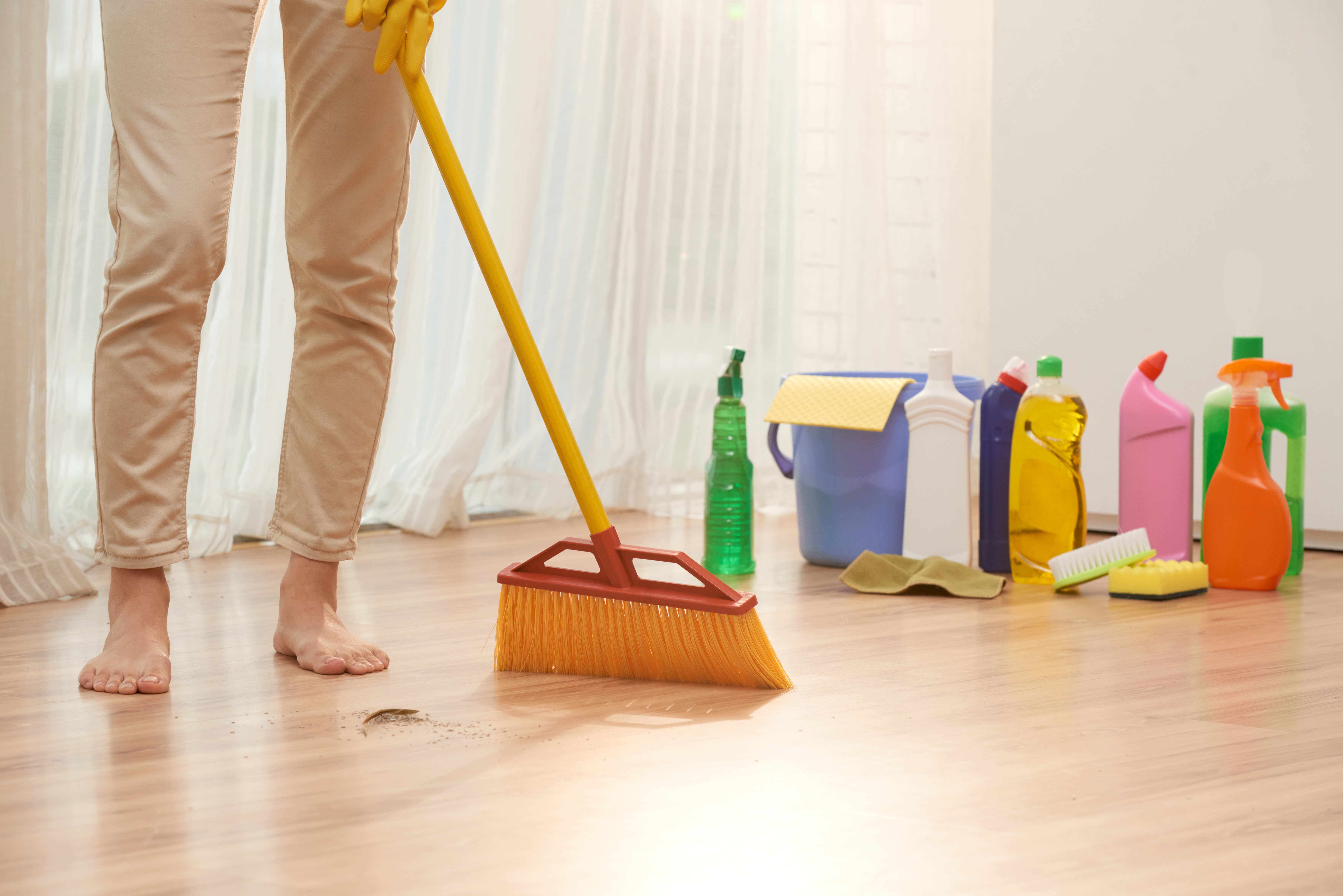


Whether you hire a professional floor cleaner or do the job yourself, the fact is, our floors need to be cleaned. They get dirty, attract scuffs and accumulate spills. But what kind of cleaner should you use for different types of floors?
Proper floor care is a critical aspect of a well maintained building. Aside from the damage that dirt and grit can do to your floors, subjecting building occupants and visitors to dirty floors is unprofessional.
At Top Notch Building Maintenance Ltd., we know that long term exposure to dirt and grit, along with the abuse floors take from every day wear-and-tear can seriously diminish the lifespan of your flooring.
That's why we aggressively maintain floors with best-in-class cleaning and waxing systems leaving your floors beautiful day in and day out while increasing the overall life of your floors.

The bottom line is a long-term cost savings as floors need to be replaced less often and your floors will look clean and shiny.
We service all flooring types: Vinyl, terrazzo, marble, hard wood, linoleum, concrete, VCT, granite, sheet vinyl, marmoleum, laminate.
Try to mop every week using 1 cup of fabric softener in half a pail water. Don’t flood the floor, since excess water can loosen adhesives and grout. Remove marks with fine grade steel wool and liquid floor wax. Rub clean, then wipe with damp cloth.
Since brick is porous, keep the surface sealed and waxed with a commercial sealer. Mop after vacuuming. Use 1 cup of vinegar mixed in water to make it shine. Use a solvent-based wax, and use a wax stripper and brush to remove buildup as needed. Don't use acids, strong soaps or abrasives.
Strip & Waxing
Floor polishing & high speed burnishing
Auto-scrubbing
Concrete sealing
Concrete polishing
Permanent floor finishesg
Decorative floor coatings
Glazed ceramic is virtually stain proof; however if it is unglazed, that means it's porous and will need to be sealed. Don’t use harsh abrasives, acids or strong soaps on unglazed ceramic. Mop with all-purpose cleaner, and dry with a soft cloth. Strip unglazed ceramic once a year and rinse thoroughly afterward.
Natural stone is rough and porous and should be sealed with a commercial sealer. Apply two thin coats of acrylic floor finish using a lamb’s wool pad, or apply paste with a floor polishing machine. Occasionally strip, rinse and reapply wax. Use a mop using either clear water, all-purpose cleaner or water with fabric softener.
Since concrete is very porous, it stains easily. Prior to sealing with a commercial sealer, sweep up loose dirt, and clean with an all-purpose cleaner. Use kitty litter to absorb oil and grease on your garage floor. Spread with a stiff broom, working from the back of the garage to the front, and then wash clean using a garden hose. If you need to use a heavy-duty floor cleaner, apply with a sponge mop, rinse and allow drying.
Prior to waxing, vacuum and mop, remove marks with a fine grade steel wool. Solvent-based products, scouring, flooding and using very hot water are all bad for linoleum. The fastest way to clean the floor is with a one-step cleaner or polish, but the best way is to mop with all-purpose cleaner.
Non-polished marble is very porous, so seal it with commercial sealer. Mop it with clear water and all-purpose cleaner. You can also use 1 cup fabric softener to ½ gallon water, and use a self-polishing liquid wax. Strip occasionally, rinse and reapply wax. You also can use water-based wax or paste wax. If using a paste, test in a corner of the room to make sure the paste won’t discolor the flooring.